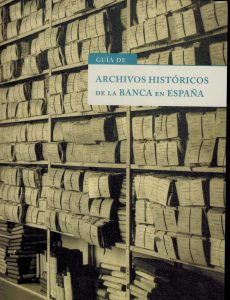

The Hemispheric Institute Digital Video Library (HIDVL)

Incidents (of Travel) explores distant corners of the world through day-long excursions and extended conversations between one artist and one curator in the place-of-residence of the artist. Semanalmente destaca películas pertenecientes al Archivo Digital de la Cineteca Nacional de Chile. Sheffield Documentary Festival - Exchangeįilms that reflect the diversity of the indigenous communities living in Brazilian territories.Ĭentro Cultural La Moneda: Cineteca Nacional de ChileĮxposiciones y actividades de interés cultural, artístico y patrimonial. In recent years, Colombia has expanded its resources to support filmmakers throughout the country, since then the number of productions has increased dramatically. Una variada oferta cultural alrededor del cine, encuentros, lecturas de película, funciones especiales y actividades para la familia.Ĭachoeira Doc: Festival Impossível Curadoria Provisóriaįilms chosen by Cachoeria Doc curators for this moment films to renew a field of questions, given the new demands of the world. La mayoría de los audiovisuales compliados se compila aquí con autorización explícita de sus realizadores otros han sido integrados desde plataformas de almacenamiento de videos.įree month-long virtual festival of live music, films, and master classes. “We are living in unprecedented times and we must find unprecedented solutions to continue to support our Latino filmmakers and provide them with a platform to showcase their work,” says Edward James Olmos, founder of LALIFF.
ARCHIVOS SONOROS HISTORICOS FOR FREE
Cine.pr has assembled a catalog of the best that the last 40 years in Puerto Rican cinema have to offer.Ĭorrientes: Latin American Experimental CinemaĪn ongoing and dynamic online space for Latin American moving image that aims to increase visibility and connect artists and viewers by providing a platform on which artists are showcasing their films.Ī digital platform for viewing Latin American cinema, with open and free access for citizens of Latin America and the Caribbean.Ī new section in the TropicalFRONT blog recommends a different film per day to watch for free online.
ARCHIVOS SONOROS HISTORICOS ARCHIVE
FilmĬine.pr-Digital Archive of Puerto Rican CinemaĪn unprecedented initiative in Caribbean cinema. For additional resources, you can also explore the Latin American and Caribbean Studies digital collections through the library. Some of the resources may no longer be available, but we are including them here as a way to showcase the organizations and artists that have made their work available during the pandemic. Links that were included in our digests have been compiled here for continued access. From virtual tours of museums to music and theater performances streamed live, we highlighted transnational initiatives aimed at making Latin American cultural resources available in new formats. We focused on online outreach programs from various cultural institutions in Latin America and the Caribbean. When the COVID-19 outbreak limited our ability to connect with one another to online communications, we scoured the Internet to find recources to share with our listserv. Therefore, much remains to be written if we are to fully appreciate the history of soft power and its associated key concepts (public and cultural diplomacy, propaganda, publicity, promotion, oeuvres -in the French context, public relations) and the multiplicity of meanings with which these ideas and practices were endowed globally throughout the modern period.Cultural and Research Resources from and about Latin America In addition, the historiography has largely omitted soft power policies produced by and targeting so called “periphery countries”. Some historians have traced their origins back to the nineteenth century with the formation of nation states (in Europe) and the growth of ministries of foreign affairs. But practices that aimed at promoting a nation abroad were not invented after the Second World War, nor were they inexistent before then. The study of soft power in the modern period is unequal, with much attention understandably paid to the Cold War when culture offered a surrogate for damaged and blocked political dialogues.


 0 kommentar(er)
0 kommentar(er)
